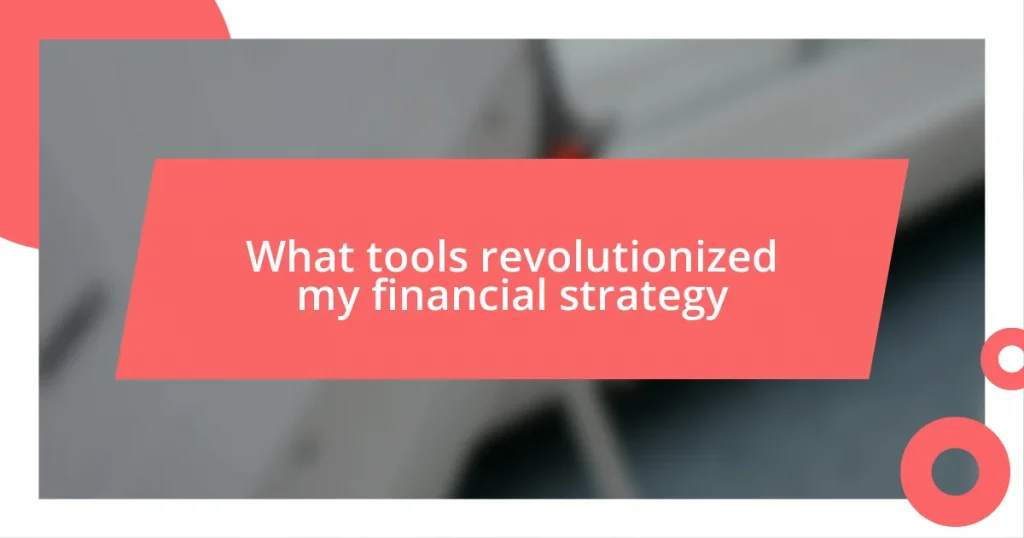Key takeaways:
- Ethical business practices build trust and enhance relationships with stakeholders, leading to increased employee satisfaction and long-term success.
- Core principles of ethical conduct include integrity, accountability, and respect, which are essential for a positive workplace culture.
- Measuring the impact of ethics through employee feedback and customer perceptions can reveal a strong link between ethical practices and business success, including retention rates and customer satisfaction.

Understanding Ethical Business Practices
When I consider ethical business practices, I think of them as the foundation of a trustworthy company. It goes beyond just following laws; it’s about building relationships based on respect and honesty. Have you ever felt uneasy about a purchase because of the company’s values? That gut feeling often stems from a deeper understanding of what ethical practices should look like.
Ethical business practices encompass transparency, fairness, and respecting stakeholder interests. For me, this means ensuring employees are treated well and customers receive fair value. I remember a time when I chose to support a local business over a big corporation, not just because of their products, but because I admired their commitment to sustainable sourcing. It felt good knowing I was supporting an ethical choice.
Furthermore, the impact of ethical violations can ripple throughout a company, leading to a loss of customer trust and employee morale. I’ve witnessed firsthand how a single unethical decision can tarnish a company’s reputation for years. In my experience, prioritizing ethics not only fosters loyalty but also creates a positive work culture, where everyone feels valued and motivated to contribute.

Importance of Ethics in Business
Ethics in business serves as a vital compass guiding decision-making and interactions. I once worked for a company that prided itself on its ethical standards, and it was refreshing to see how that translated into our everyday operations. Employees felt more engaged, knowing that our actions aligned with our values rather than merely chasing profits. I recall how, during a challenging project, we chose to disclose potential setbacks to our clients. It was a tough call, but it ultimately strengthened our partnership and their trust in us.
When businesses prioritize ethics, they not only protect their reputation but also enrich their brand. Consider these key points:
- Trust Building: Ethical practices lay the groundwork for strong relationships with customers and suppliers.
- Employee Satisfaction: A culture of integrity boosts morale, leading to higher productivity.
- Long-term Success: Companies known for their ethical standing often outperform competitors in the long run.
- Risk Mitigation: By adhering to ethical guidelines, businesses reduce the risk of legal issues and scandals.
- Community Impact: Ethical choices resonate with consumers, enhancing the company’s role in the community and encouraging loyalty.
I remember a time when I bought from a brand explicitly committed to ethical labor practices. It felt great to engage in commerce that aligned with my values, reinforcing my belief in the power of ethical business.

Key Principles of Ethical Conduct
Ethical conduct in business revolves around core principles that guide behavior and decision-making. One principle that resonates deeply with me is integrity. I recall a situation where I had to make a choice about a product I was selling. Despite the pressure to inflate its features, I opted for honesty. Embracing integrity not only fostered trust with my clients but also brought me a sense of pride in my work.
Another crucial principle is accountability. This means taking responsibility for one’s actions, whether the outcome is positive or negative. I remember leading a team where we missed a project deadline. Instead of shifting blame, I encouraged everyone to openly discuss what went wrong and how we could improve. This approach nurtured a transparent environment and ultimately strengthened our team’s cohesion.
Finally, respect is fundamental in ethical business practices. I’ve experienced environments where respect was lacking, leading to high turnover rates. Conversely, when respect is embedded in a company’s culture, employees feel valued and appreciated. I’ve seen firsthand how this respect translates into increased creativity and collaboration, propelling the business forward.
| Key Principle | Description |
|---|---|
| Integrity | Upholding honesty and strong moral principles in all business dealings. |
| Accountability | Taking responsibility for one’s actions and their outcomes, fostering trust and reliability. |
| Respect | Valuing the contributions and dignity of every individual within the organization. |

Implementing Ethical Policies Effectively
Implementing ethical policies effectively involves more than just creating a document; it’s about embedding those values in the company’s culture. In my experience, I witnessed a transformative effect when a leader made it a priority to communicate ethical expectations regularly. During team meetings, we were encouraged to discuss not just what we were doing but why it mattered ethically. That practice made ethics feel like a living, breathing part of our organization, rather than a set of rules we merely followed.
Training is another crucial aspect of implementation. I remember attending a workshop focused on ethics in decision-making. It wasn’t just theoretical; we engaged in role-playing scenarios that addressed real-life dilemmas we might face. That hands-on approach left a lasting impression and has shaped how I navigate ethical challenges ever since. How can we expect employees to uphold ethical standards without giving them the tools to do so?
Monitoring and feedback mechanisms are essential for reinforcing ethical policies. In a previous job, we had an anonymous hotline where employees could report unethical behavior without fear of retribution. I recall the relief it brought to colleagues when they realized their voices could be heard. It reinforced the idea that our company genuinely cared about ethics and encouraged a proactive stance toward integrity. How might your organization benefit from a similar approach?

Encouraging Ethical Decision Making
One effective way to encourage ethical decision-making is through open dialogue within teams. I often found that when my colleagues and I were encouraged to share our thoughts on ethical dilemmas, it not only sparked vibrant discussions but also led to collaborative solutions. Have you ever been in a situation where talking it out made the ethical path clearer? That shared insight truly reinforces a culture of integrity.
Another approach is to celebrate ethical behavior when it’s observed. I recall a time when a coworker took a stand against a questionable practice, and our manager made a point to publicly praise that decision in front of the entire team. This acknowledgment not only uplifted my colleague but also set a precedent for all of us. Seeing accountability rewarded made ethics feel like a valued part of our workplace culture rather than merely an obligation.
Lastly, integrating ethical decision-making into everyday tasks can significantly impact how choices are made. I once worked on a project where we were asked to evaluate proposals not just for their profitability, but also for their adherence to our ethical standards. That added layer of scrutiny prompted lively debates and, ultimately, decisions we could all stand behind. How can your team incorporate similar evaluations to make ethics a cornerstone of decision-making?

Measuring the Impact of Ethics
Measuring the impact of ethics in a business isn’t easy, but I find it can be done through a mix of qualitative and quantitative methods. For instance, I once participated in an employee satisfaction survey that included questions specifically about ethical practices in our workplace. The insights we gathered about how employees felt valued and supported in voicing their concerns were eye-opening. It made me realize that ethics play a vital role in shaping an environment where everyone feels they belong.
When I think about practical metrics, I remember a company I worked for that tracked not just sales growth but also customer feedback on their ethical practices. They implemented a simple rating system asking customers how they perceived the company’s commitment to ethics after their purchase. I was astounded by the direct correlation: as customer satisfaction increased, so did our retention rates. Isn’t it fascinating how positive ethical practices can directly influence business savvy?
I believe one of the most telling measures of ethical impact is employee turnover rates. In one organization, we experienced a spike in turnover that led us to investigate the underlying causes. Upon reflection, many employees expressed their frustration with perceived ethical lapses. This experience taught me that fostering an ethical culture isn’t just a nicety; it’s essential for retaining top talent. Have you ever noticed how ethical practices can swing the door both ways—either keeping your best employees or sending them packing?

Case Studies of Ethical Success
I recall working for a tech startup that garnered attention for its transparency regarding data privacy. Their open policy about user data collection blew my mind; they even hosted webinars to educate customers on how their information was used. This not only built trust with their clientele but also inspired employees to be more proud of the company they represented. Have you ever worked for a business that prioritized transparency in such a way? It leaves a lasting impression.
Another remarkable example comes from a large corporate retailer that implemented sustainable practices throughout its supply chain. I had the privilege of attending a company meeting where the CEO shared personal stories of farmers who had benefitted from fair trade partnerships. Seeing those faces on the screen as he spoke about their increased quality of life made ethics feel real, not just a buzzword. Don’t you think that when businesses connect their practices to real people’s lives, it creates a more profound impact?
One case that stands out is a non-profit organization I volunteered with, where they devoted a significant portion of their resources to community engagement. I remember distinct instances of team members visiting local schools to provide educational workshops. This hands-on approach didn’t just fulfill their mission but also strengthened community ties. How often do you see organizations taking such tangible steps to make a difference? It’s these actions that truly resonate with both employees and the communities they serve.















